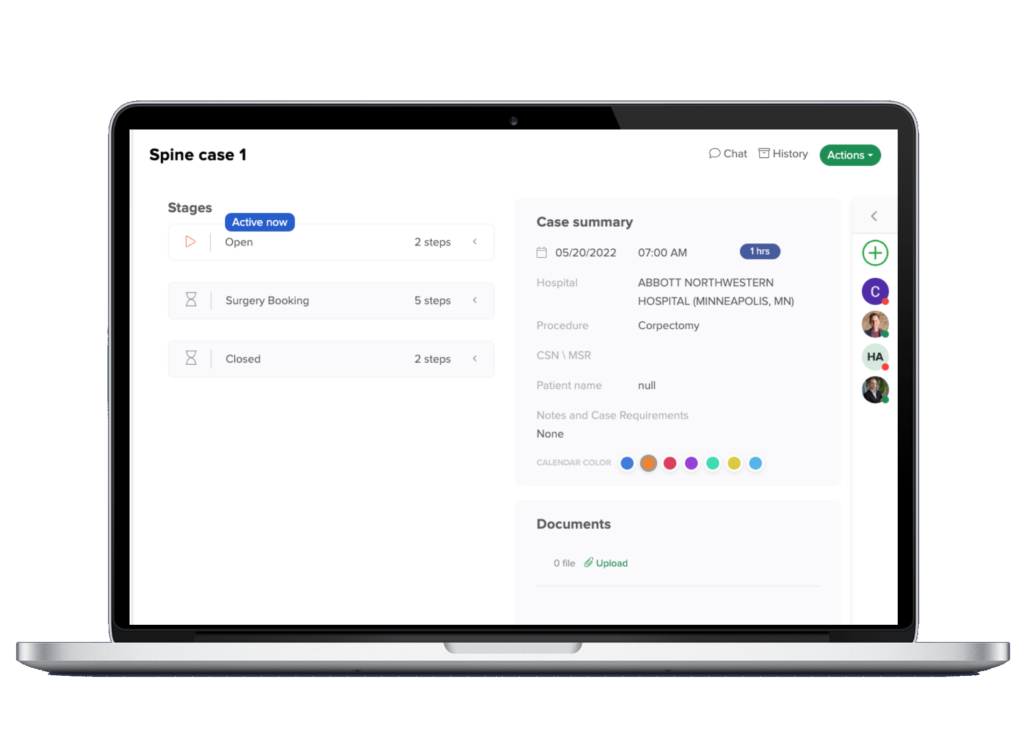Effective team collaboration is crucial for Ambulatory Surgery Centers (ASCs), especially when aligning with the stringent guidelines set by the Centers for Medicare & Medicaid Services (CMS). Collaboration in healthcare not only ensures compliance but also enhances patient care, safety, and operational efficiency. This article will explore the key steps ASCs can take to enhance team collaboration in accordance with CMS requirements.
The Importance of Team Collaboration in ASCs
In the context of ASCs, team collaboration involves coordinated efforts among surgeons, nurses, administrative staff, and other healthcare professionals. Effective collaboration is essential for meeting CMS guidelines that emphasize integrated care, patient safety, and efficient healthcare delivery.
Benefits of Effective Collaboration
- Compliance: Adhering to CMS guidelines requires seamless collaboration among all team members to ensure that all protocols and procedures are followed correctly.
- Patient Care: Better communication and collaboration lead to improved patient outcomes, as all team members are on the same page regarding patient care plans.
- Efficiency: Streamlined workflows and clear communication reduce delays and errors, leading to more efficient operations.
Enhancing Team Collaboration: Key Steps
1. Clear Communication Channels
Establish open and effective communication channels among team members. This includes regular meetings, clear email communication, and the use of collaborative tools. Using platforms like HUB Healthcare can centralize communications, ensuring that all team members have access to up-to-date information and can communicate in real-time.
2. Role Clarity
Ensure every team member understands their role and responsibilities, particularly in how they relate to CMS guidelines and patient care protocols. This clarity helps prevent overlap, reduces confusion, and ensures that everyone knows what is expected of them.
3. Shared Goals and Objectives
Align the team with shared goals that comply with CMS requirements, focusing on patient care quality, safety, and efficient operations. Having a common set of objectives ensures that all team members are working towards the same outcomes, promoting unity and coordinated efforts.
4. Training and Development
Provide regular training on CMS guidelines, teamwork skills, and conflict resolution to ensure that all staff members are competent and confident in their roles. Continuous education helps keep the team updated on best practices and new regulations.
5. Utilizing Technology
Implement technology solutions that facilitate better collaboration and compliance tracking. This could include electronic health records (EHRs), project management tools, or communication platforms. HUB Healthcare offers comprehensive tools that integrate these functionalities, helping ASCs stay compliant and efficient.
6. Feedback and Continuous Improvement
Encourage feedback among team members and use it constructively to improve collaborative processes. Regularly review and refine workflows based on feedback to ensure continuous improvement and adaptation to new challenges.
7. Cultural Competence
Foster an inclusive work environment where diverse perspectives are valued, leading to more comprehensive patient care. Embracing cultural competence enhances communication and collaboration, ensuring that all patients receive respectful and individualized care.
Exploring Further: Collaboration in Healthcare
For more in-depth knowledge on team collaboration in the healthcare sector, visit our resource on team collaboration in healthcare. It provides valuable insights from scholarly articles and healthcare collaboration platforms.
Conclusion
Enhancing team collaboration in ASCs is a dynamic process that requires a commitment to clear communication, continuous training, and the integration of technology. By following these key steps and aligning with CMS guidelines, ASCs can create a collaborative environment that promotes high-quality patient care and operational excellence.
How HUB Healthcare Can Help
HUB Healthcare offers a comprehensive solution designed to enhance communication in healthcare, streamline care coordination, and improve overall workflow efficiency. Our platform includes features such as medical case management software, healthcare document management, and healthcare analytics to ensure that all aspects of patient care are optimized. By leveraging HUB Healthcare’s robust tools, organizations can reduce workflow bottlenecks, automate repetitive tasks, and facilitate better collaboration among healthcare providers. This not only improves work quality but also enhances patient outcomes, making HUB Healthcare an essential partner in achieving healthcare excellence.








